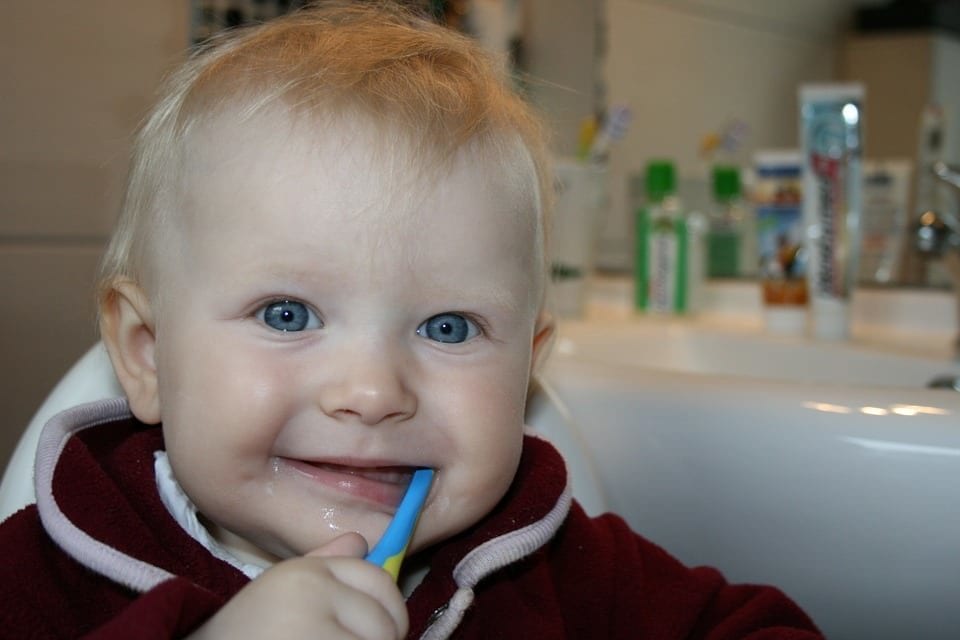 Proper oral hygiene will provide your children with beautiful, healthy teeth for life. Here are some tips on how to make your children like teeth brushing …
Proper oral hygiene will provide your children with beautiful, healthy teeth for life. Here are some tips on how to make your children like teeth brushing …
If you constantly have to remind children about brushing their teeth (to their great dissatisfaction), and a routine visit to the dentist is a real nightmare, remember that not only you have such a problem. It is not easy to teach children good habits in such a way that they do not become a chore for them … However, it is possible! Read how to do it.
Explain to them why oral hygiene is important
Children like to know why adults ask them to do certain things. Talk to your children about tooth decay and gum disease. Explain to them that in our oral cavity various types of microbes and bacteria can develop that can cause tooth and gum disease – so it is important to get rid of them. Tell them that if they brush their teeth properly, their smile will be beautiful and healthy and will not have problems with tooth decay (tooth decay), black, brown or yellow teeth (bleeding), with aching, bleeding gums (gum disease) or unpleasant fragrance from the mouth. This method may seem drastic to you, but perhaps your children need this knowledge to start taking care of their teeth by themselves.
Teach children the correct tooth brushing technique
Before the age of six, children are rarely able to properly clean their teeth, so you must help them. Remember, however, that children like to observe what their parents are doing – it is worth to start learning how to brush properly. Apply a small amount of toothpaste (approximately pea size) on the toothbrush and brush your child’s teeth for two minutes. You can also include your favorite song in your child and suggest that you brush your teeth until the song is over. Apply circular and sweeping movements, brushing your teeth from top to bottom; make sure all surfaces have been cleaned.
Use technology – let the science of proper hygiene become fun
An electric toothbrush may seem more exciting to a child than a manual toothbrush. Technology can become part of a daily tooth brushing ritual: look for YouTube videos and songs about oral hygiene or download an application that runs when brushing. Some parents search in Google for photos of people with broken or broken teeth, to show their children what can happen if they do not regularly brush their teeth … It’s all up to you!
Give a good example to your child
Let the child watch you brushing your teeth. You can also take your child to visit your dentist. In this way, you’ll get used to visiting the dentist even before he needs regular checks and inspections.
Search for a dentist support
If your children are afraid of visiting the dentist, call the office and talk to the dentist before the visit. He certainly has experience in working with “difficult” patients and may want to share valuable tips on how to deal with a frightened child. You can also offer your child a “dentist and patient” with a favorite doll or teddy bear and an old toothbrush. Let the child count and examine the “teeth” of the teddy bear, and after all, give the brave patient a reward, for example a sticker.
Encourage children to eat products that are good for their teeth
Drinking “teeth-friendly” milk and eating cheese or yogurt that protects tooth enamel and strengthens teeth is a very important aspect of taking care of your teeth. Sweets should only be an occasional treat, and dried fruits, such as raisins, give the child with meals (and not in the form of a separate snack), because they contain large amounts of sugar harmful to the teeth. This will reduce the risk of cavities – perhaps this will make the dentist’s visit seem less frightening.
Limit sweet drinks
Accustom your children to drinking water after each meal. The water will “brush” teeth and remove food residue – remember that even a few small sips make a difference. Avoid fizzy drinks and limit the consumption of fruit juices. If your child gets juice as a treat, dilute it with water and serve it in a non-flask cup instead of in a regular bottle or glass, from which children drink more slowly (making sugar stay longer on the teeth).
Picture Credit: collusor
